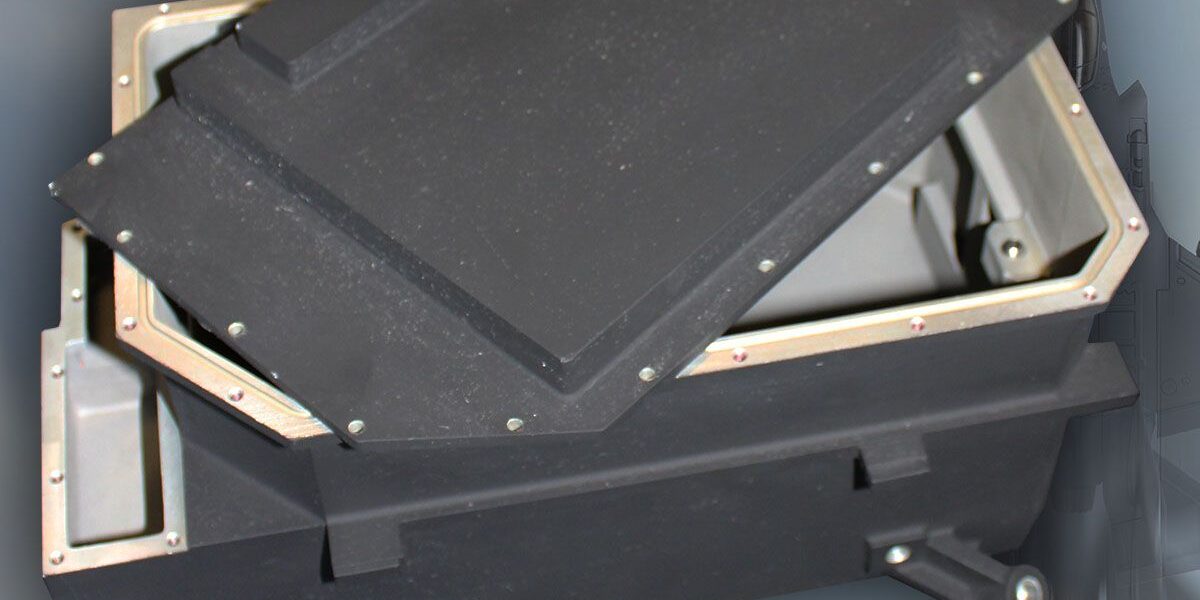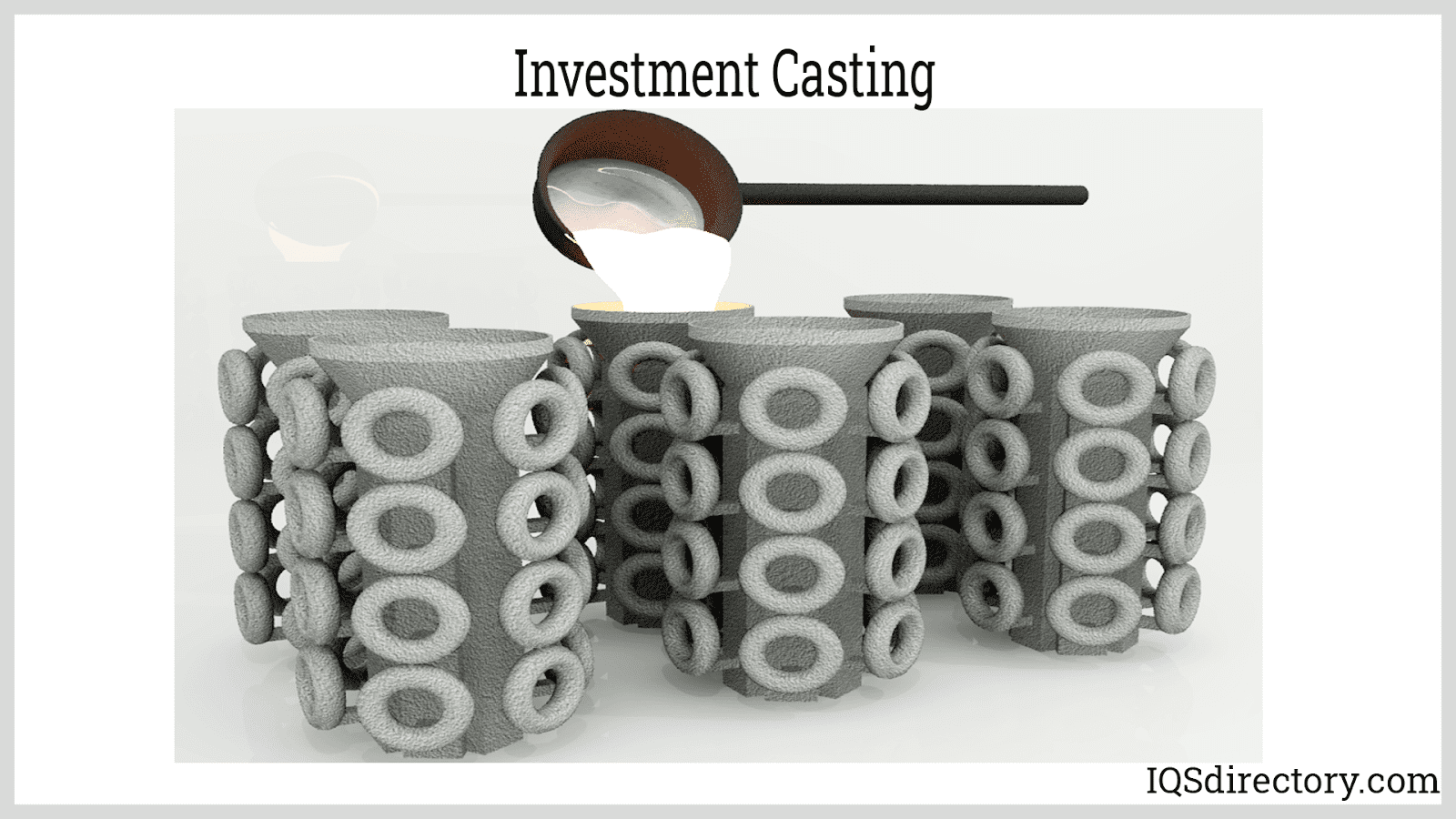The Influence of Cutting-edge Foundry Solutions on Sustainable Production Practices
Ingenious shop services play a crucial function ahead of time sustainable production practices. By incorporating recycling innovations and energy-efficient processes, these services substantially lower environmental impact. Factories can reclaim important products, consequently decreasing dependence on virgin resources. As automation and lean manufacturing concepts acquire traction, manufacturing effectiveness is optimized. The complete extent of these innovations and their effects for the future of producing remain to be explored.
The Duty of Advanced Recycling Technologies in Foundries
Advanced recycling modern technologies are transforming the landscape of shops by improving product healing and lowering waste. These ingenious processes enable foundries to redeem useful steels and materials from scrap, minimizing dependence on virgin sources. By incorporating innovative sorting, shredding, and melting methods, shops can successfully draw out usable materials from thrown out products, consequently advertising a circular economy.
Furthermore, these innovations sustain the manufacturing of top notch alloys and components, making sure that recycled products satisfy strict industry standards (Precision aluminum casting). As a result, foundries are not just enhancing their material effectiveness yet additionally decreasing the environmental impact associated with conventional manufacturing techniques
This shift in the direction of progressed reusing not just strengthens financial stability for factories however likewise straightens with global sustainability goals. Inevitably, the consolidation of these innovations represents a substantial progression in the quest for lasting production practices within the factory market.
Energy Effectiveness: Minimizing Usage in Manufacturing Processes
Power efficiency in producing procedures is critical for lasting procedures. Strategies such as process optimization methods, eco-friendly power integration, and waste warm healing play essential roles in lessening energy intake. By focusing on these areas, makers can significantly decrease their ecological influence while improving productivity.
Refine Optimization Techniques
A considerable variety of manufacturing centers are significantly adopting process optimization methods to enhance power performance and decrease consumption. These methods entail improving and examining production operations, identifying traffic jams, and implementing automation to enhance procedures. By leveraging information analytics, makers can keep an eye on power usage in real-time, enabling aggressive adjustments to lessen waste. Techniques such as Lean Production and 6 Sigma concentrate on enhancing and removing ineffectiveness source allocation. In addition, progressed innovations like Web of Things (IoT) sensors supply understandings right into tools performance, promoting predictive upkeep that avoids power loss. On the whole, these process optimization methods not only add to lowered power consumption yet likewise promote a society of constant improvement within making atmospheres, aligning functional methods with sustainability objectives.
Renewable Energy Combination
Lots of manufacturing facilities are increasingly incorporating renewable resource resources to improve general power effectiveness and minimize dependence on conventional power grids. This adjustment includes the fostering of solar, wind, and biomass power, which can substantially decrease functional expenses and decrease carbon impacts. By making use of these sustainable energy sources, producers not only reduce their environmental influence yet additionally improve energy strength. In enhancement, incorporating renewable resource systems frequently involves innovative modern technologies such as power storage and smart grid options, which maximize energy use and promote real-time surveillance. This combination supports producers in achieving regulatory conformity and conference sustainability goals while fostering advancement in production processes. Eventually, renewable resource integration represents a pivotal shift in the direction of even more lasting production techniques and long-term practicality.
Waste Warmth Healing
Integrating eco-friendly power resources sets the phase for further advancements in power effectiveness, especially via the application of waste warm healing systems. These systems catch excess thermal power produced during manufacturing processes, which would otherwise be shed to the setting. By repurposing this warm, factories can significantly reduce their energy usage, lower operational prices, and decrease their carbon footprint. The recouped heat can be used for numerous applications, such as heating, power generation, or pre-heating resources. Because of this, waste warmth recovery not only boosts energy effectiveness yet also adds to a lasting manufacturing design. Cutting-edge foundry solutions that prioritize this innovation are leading the means for an eco responsible industrial landscape, lining up profitability with environmental stewardship.
Making Use Of Eco-Friendly Products in Foundry Operations
As the demand for sustainable manufacturing methods grows, factories are significantly transforming to environmentally friendly products to enhance their procedures. By including sustainable choices, such as recycled steels and bio-based binders, shops can significantly decrease their ecological footprint. These products usually need much less energy for processing and can lessen dangerous emissions throughout production.
The adoption of green materials not only aligns with regulative standards however additionally fulfills customer preferences for greener products. Shops are discovering innovative choices, such as using organic ingredients that enhance mold quality while staying non-toxic.
The shift to sustainable products promotes a circular economic climate by promoting source reuse and reducing waste. Furthermore, this change can boost the total performance of foundry procedures, as environmentally friendly materials typically exhibit superior residential properties, causing improved item performance - Aluminum Casting Company. Eventually, the application of environment-friendly materials stands for a crucial step toward sustainable production in the factory sector

Technologies in Waste Monitoring and Decrease Techniques
The shift in the direction of eco-friendly products in shop operations leads the way for advancements in waste administration and reduction strategies. Ingenious factory services are significantly taking on methods that reduce waste generation and advertise recycling. Strategies such as closed-loop systems permit the reuse of materials, considerably reducing the volume of waste produced during manufacturing processes. Furthermore, innovations in filtering and splitting up technologies enable the efficient recovery of beneficial spin-offs, which can be reintegrated into the production cycle.
Moreover, the execution of real-time monitoring systems supplies data-driven insights right into waste generation patterns, facilitating educated decision-making to enhance resource usage. Shops are additionally exploring biowaste options, converting organic waste into power or useful materials, better advertising sustainability. These technologies not just add to a circular economic situation however likewise improve the total environmental performance of factory procedures, underscoring the industry's commitment to reducing its environmental impact.
The Influence of Automation on Sustainable Production
While several industries goal for sustainability, automation becomes a read this article necessary consider enhancing lasting manufacturing methods within factories. By integrating automated systems, shops can accomplish better effectiveness, minimize waste, and lower power consumption. Automated procedures enable exact control over production parameters, decreasing problems and revamp, which in turn saves sources.
Furthermore, automation facilitates the tracking of ecological impacts, allowing real-time changes that straighten with sustainability objectives. Aluminum Casting Company. Advanced robotics and synthetic intelligence can optimize material usage, leading to significant decreases in more info here scrap and exhausts
Furthermore, automated technologies advertise more secure working environments by managing unsafe tasks, therefore boosting worker well-being while guaranteeing compliance with environmental regulations. Overall, the adoption of automation within foundries not only streamlines operations yet additionally plays a pivotal duty beforehand sustainable production techniques, adding to a more responsible commercial landscape.
Instance Studies: Successful Application of Sustainable Shop Practices
Successful execution of sustainable techniques in factories can be illustrated via different study that highlight quantifiable outcomes and innovative techniques. One noteworthy example is a mid-sized shop that took on a closed-loop water reusing system, lowering water intake by 40% and lowering wastewater generation. Furthermore, this center transformed to making use of green mold and mildew products, which not just enhanced product quality yet additionally improved employee safety and security.
One more significant situation included a large shop integrating renewable resource resources, such as photovoltaic panels, which counter 30% of its energy requires. This initiative not just reduced operational prices however also added to a considerable reduction in carbon exhausts.
Finally, a shop that applied lean manufacturing strategies reported a 25% boost in performance, causing less material waste and maximized production procedures. These cases collectively underscore the substantial anchor benefits and sustainability advancements attainable via cutting-edge foundry practices.
Often Asked Concerns
How Do Innovative Foundry Providers Contribute to General Sustainability Goals?
Ingenious shop solutions improve overall sustainability goals by optimizing resource usage, decreasing waste, and enhancing power performance. These developments contribute to reduce carbon impacts and advertise eco liable practices within the production field, sustaining more comprehensive sustainability initiatives.
What Are the Economic Benefits of Adopting Lasting Foundry Practices?
Adopting sustainable foundry techniques can lower operational costs, enhance resource performance, and boost competitiveness. Additionally, these techniques can bring in eco-conscious consumers and financiers, inevitably leading to boosted productivity and lasting economic viability for services.
How Can Tiny Foundries Apply Sustainable Developments Effectively?
Little foundries can carry out sustainable technologies properly by adopting energy-efficient modern technologies, optimizing source use, educating staff on sustainable methods, working together with vendors for green materials, and involving in constant improvement procedures to decrease waste and emissions.
What Qualifications Exist for Lasting Shop Procedures?

Exactly How Do Customer Preferences Impact Lasting Manufacturing in Foundries?
Consumer choices substantially affect lasting production in foundries by driving demand for green products. As consumers prioritize sustainability, foundries adapt their techniques, incorporating greener materials and technologies to meet market expectations and improve their affordable benefit.
By repurposing this warmth, shops can substantially lower their power usage, reduced functional expenses, and decrease their carbon impact. Shops are additionally discovering biowaste services, transforming natural waste right into energy or functional products, better advertising sustainability. By integrating automated systems, factories can accomplish higher effectiveness, decrease waste, and lower power consumption. An additional substantial instance entailed a big foundry incorporating renewable power resources, such as solar panels, which counter 30% of its power needs. Innovative foundry solutions boost general sustainability goals by optimizing resource use, lowering waste, and boosting energy effectiveness.